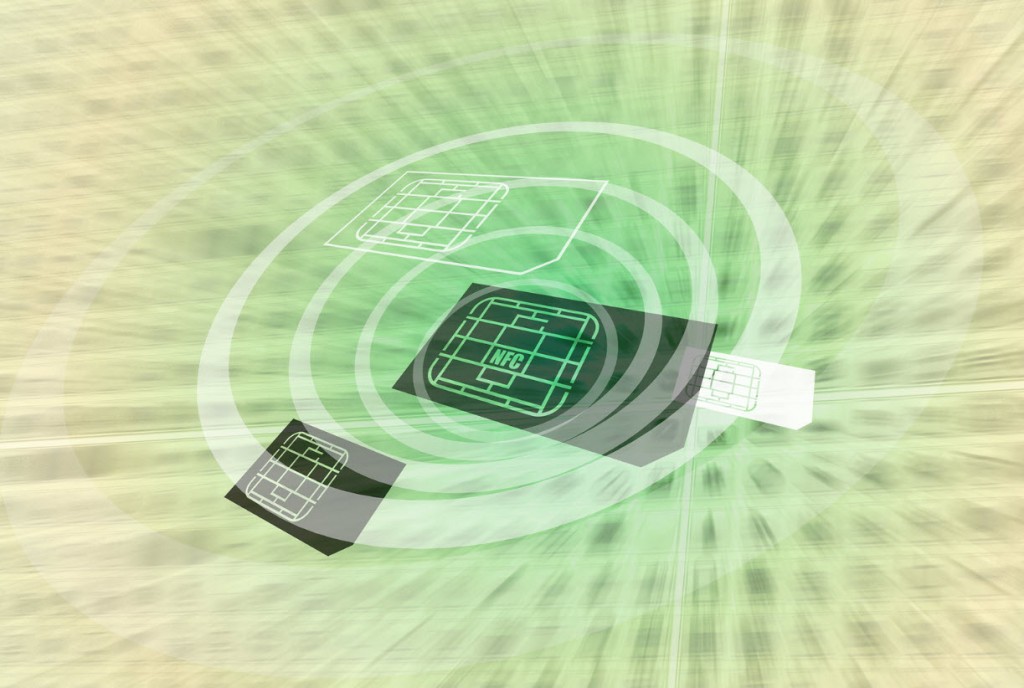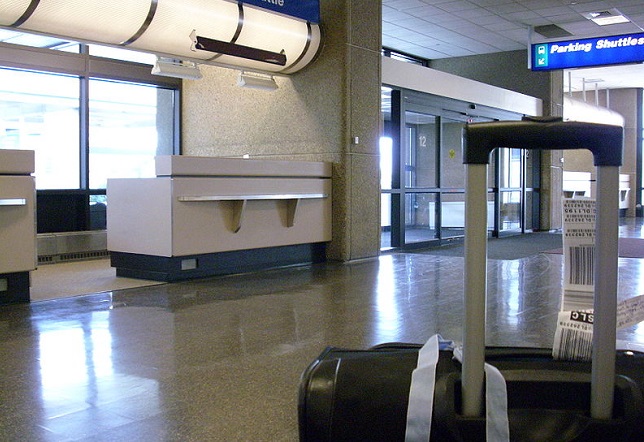Denny |
November 10, 2016
Near field communication could play a role in reducing the effectiveness of falsified visas and passports.
A new partnership may soon mean that a combination of hologram and NFC technology could fight counterfeit government documents. The companies involved are Thinfilm, a printed electronics firm, and Holoptica, an authentication solutions provider.
The end product could potentially be a holographic NFC tagged chip used as an anti-counterfeiting solution.
This use of NFC technology in combination with holograms could create a government document that can’t be forged. Moreover, it could also be possible to invalidate a legitimate document in the case of theft.
 The SpeedTap tag is produced by Thinfilm. It includes an NFC chip that would make it possible for consumers and government officials to connect to the certified digital replica of a document. This way, a single tap of an NFC-enabled smartphone could be all that is required to verify a document’s authenticity.
The SpeedTap tag is produced by Thinfilm. It includes an NFC chip that would make it possible for consumers and government officials to connect to the certified digital replica of a document. This way, a single tap of an NFC-enabled smartphone could be all that is required to verify a document’s authenticity.
If this use of holograms and NFC technology works, it could save over $10 billion (US) each year.
The black market costs an estimated US$10 billion in forged and counterfeit passports, work permits and visas every year. Near field communication chips worked into these documents could mean that fraud would be much closer to being eliminated.
According to the Holoptica CEO, George Perkous, “Combining Thinfilm’s SpeedTap tags with Holoptica’s high-security SmartMark hologram creates a highly effective yet economical solution in the fight against counterfeiters.” He went on to say that the company is looking forward to seeing the outcome of the role played by the NFC tags in boosting document security on a global scale.
Thinfilm CEO Davor Sutija explained that “Document fraud costs governments and businesses billions of dollars each year and directly contributes to the growth of global terrorist activity.” He expressed that his company is glad to be working on the NFC technology and hologram solution as a part of a meaningful anti-counterfeiting strategy.
Sutija feels that this effort will contribute to making the world a safer place for everyone. It will help to minimize the risk of counterfeiting among important government documents in countries worldwide.
These types of mobile technology are all being implemented to help to add value to the experience for travelers.
The Balogna Airport has revealed that it will be using a range of different forms of mobile technology, including geolocation beacons, near field communication (NFC) tags, and even QR codes to help to enhance the experience of travelers who make their way through this location.
There are about 7 million passengers that make their way through the airport every year.
By using geolocation beacons with Bluetooth low-energy technology, and by combining that with NFC tags and quick response codes, the Balogna Airport is hoping to be able to reach as many travelers as possible, regardless of the model or make of their mobile phones. Using these various types of tech, it will become possible for the airport to send pro-active notifications to travelers such as promotions and alerts. These will be sent directly to the smartphones so travelers will be able to receive them when they are most relevant to their present locations.
For travelers to receive these geolocation technology based benefits, they must use the free BLQ Balogna app.
 The purpose of the location based technology, the NFC tags and the QR codes is to make it possible for passengers to quickly and easily obtain the app and take advantage of everything the airport has to offer, no matter where they happen to be. The airport worked with Connecthings, a mobile tech company, in order to launch this project. The notifications sent to the app will be managed by airport staff who have access to a dedicated content management platform.
The purpose of the location based technology, the NFC tags and the QR codes is to make it possible for passengers to quickly and easily obtain the app and take advantage of everything the airport has to offer, no matter where they happen to be. The airport worked with Connecthings, a mobile tech company, in order to launch this project. The notifications sent to the app will be managed by airport staff who have access to a dedicated content management platform.
The airport’s IT & innovations manager, Silvia Lombardi, said that “Connecthings’ innovative solution will allow us to create new ways of interactions between our BLQ Bologna application and the dozens of installed, connected beacons within the airport – hence improving our customers’ dedicated information services.”
She added that these digital services give the airport the chance to engage with all visitors and travelers who find themselves there. It provides them with facilitated airport orientation so they will be able to use their favorite devices – which will automatically know where they are via geolocation – to find exactly what they need and learn about offers, opportunities and solutions of which they might not otherwise have been aware.
 The SpeedTap tag is produced by Thinfilm. It includes an NFC chip that would make it possible for consumers and government officials to connect to the certified digital replica of a document. This way, a single tap of an NFC-enabled smartphone could be all that is required to verify a document’s authenticity.
The SpeedTap tag is produced by Thinfilm. It includes an NFC chip that would make it possible for consumers and government officials to connect to the certified digital replica of a document. This way, a single tap of an NFC-enabled smartphone could be all that is required to verify a document’s authenticity.
 The purpose of the location based technology, the NFC tags and the QR codes is to make it possible for passengers to quickly and easily obtain the app and take advantage of everything the airport has to offer, no matter where they happen to be. The airport worked with Connecthings, a mobile tech company, in order to launch this project. The notifications sent to the app will be managed by airport staff who have access to a dedicated content management platform.
The purpose of the location based technology, the NFC tags and the QR codes is to make it possible for passengers to quickly and easily obtain the app and take advantage of everything the airport has to offer, no matter where they happen to be. The airport worked with Connecthings, a mobile tech company, in order to launch this project. The notifications sent to the app will be managed by airport staff who have access to a dedicated content management platform.